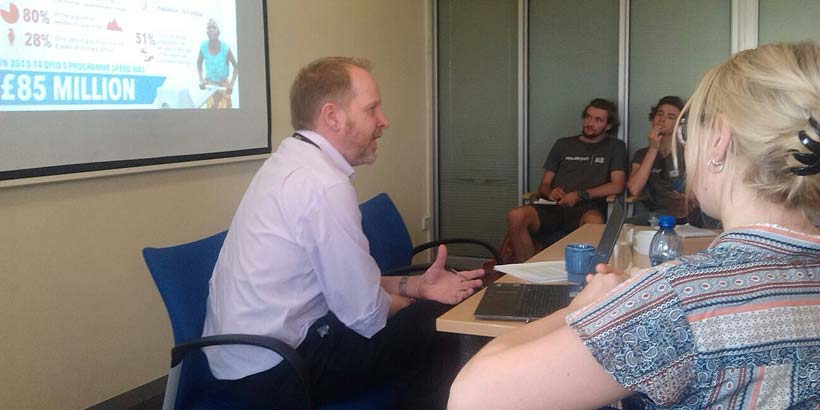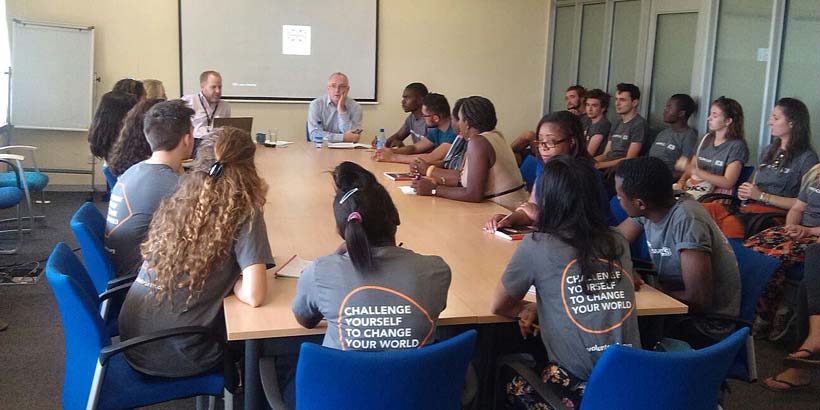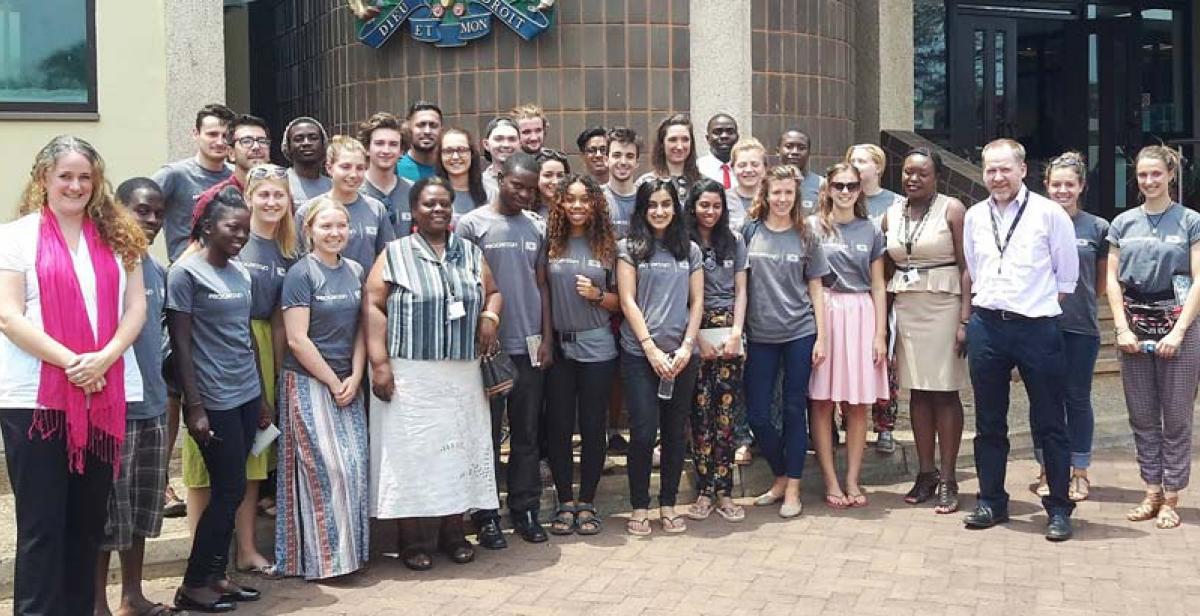This time last week I was sat in an East London start-up office, a Britney Spears head set on, trying to squeeze every last penny out of a spoiled American tourist. Fast forward seven days and I find myself in the Department for International Development (DFID), in Lilongwe. I’m surrounded by 25 other young volunteers, all aged 18-25 and all wearing the same t-shirt as me. We’ve been invited here today by Philip Smith the Deputy Head of the department and we’re particularly keen to impress (some of us even declined the biscuits) because, as Progressio ICS volunteers, our 12 week placements are funded by DFID – and we’re eager to prove that we are as serious as he is about the future of Malawi. We aren’t on some philanthropist gap year, but rather we want to work to help to affect change.
I quit my job last week and flew to one of the poorest countries in the world to join an HIV and AIDS awareness project in Mzuzu, northern Malawi. These first five days have been spent in the capital, Lilongwe, at a training lodge with volunteers from several other projects and our Malawian counterparts. It’s been a whirlwind of a week, full of Nsima, Red Dust and Chitimbuka classes. There’s been a daily excess of carbs, an overload of information and a surplus of the new and exciting. Today at the British High Commission, I was soberly reminded exactly why I boarded that plane.

It wasn’t difficult for Philip Smith to justify his presence in Malawi. Ranking at 174 out of 187 on the human development index, Malawi faces a plethora of problems; 79% of its 17.5 million inhabitants live below the poverty line. The population is swelling at a growth rate of 2.7% and is expected to triple by 2040. There’s a high prevalence of Malaria and HIV. 80% of the population live in rural areas, only 50% have access to proper sanitation, 90 % of the population live without electricity with often poor access to proper sanitation, only 28% of girls finish primary school and lest us forget that deforestation is devastatingly rife - making the country vulnerable to climate change and flooding.
The facts and figures were endless and all painted a bleak picture. One of unfairness, poverty and a drastic need for change. There is, however, hope – and it can be seen on every Malawian’s face. DFID explained their role in the country’s development, the UK is one of the main ‘development partners’ (not donor, never donor - Philip emphasised) to the Malawian government. In 2014, 78 million pounds supported their various projects focusing on the key areas of human development and equality, governance and reform and economic growth. After 50 years of aid - infant mortality has reduced from 254 per 1000 to 68 per 1000, 23,000 women have had access to financial services and 14,000 girls have remained in school, thanks to DFID.
Since the Cashgate scandal of 2013 when President Joyce Banda's government officials were discovered with mountains of cash in their car boots, DFID has withdrawn all direct economic support to the government, favouring development projects working with partner organisations such as UNICEF. Sadly, Malawi has not been able to escape that world endemic disease of corruption. Despite this, DFID have remained, adamant that they will continue to work alongside the government, allowing the onus to remain with Malawi. Philip emphasised the role of Malawian youth as being pivotal in shaping the country’s future, something I and my fellow volunteers found ourselves vehemently nodding to, having spent the last few days in the company of some of the most intelligent, and zealous young Malawians.

Philip gave his presentation with a quiet passion, unfaltering confidence and a sobering acceptance of reality. He was refreshingly un-patronising to his baby-faced audience and answered our questions with an enduring patience. We immediately warmed to him as he said that he would like to have us back to get our opinions after our time as on the ground, admitting that he was, for the most part, someone who spent most of his time in an office a world away from the problems he spoke of.
International development has many faces, all of which are as vital as the other. As we left the High Commission today we were invigorated with a new sense of why - we have come to this country for a reason - to play our tiny, yet important, parts in Malawi’s development.
My life has changed drastically in seven days - it takes longer for a country. I strongly believe that as we continue to work together with an empowered Malawian youth, that a time will come when Malawi no longer needs DFID. Not as a donor, not as a development partner, not at all.
Written by ICS volunteer Jude Ward



